ECOLOGY ▪ EDUCATION ▪ ADVOCACY
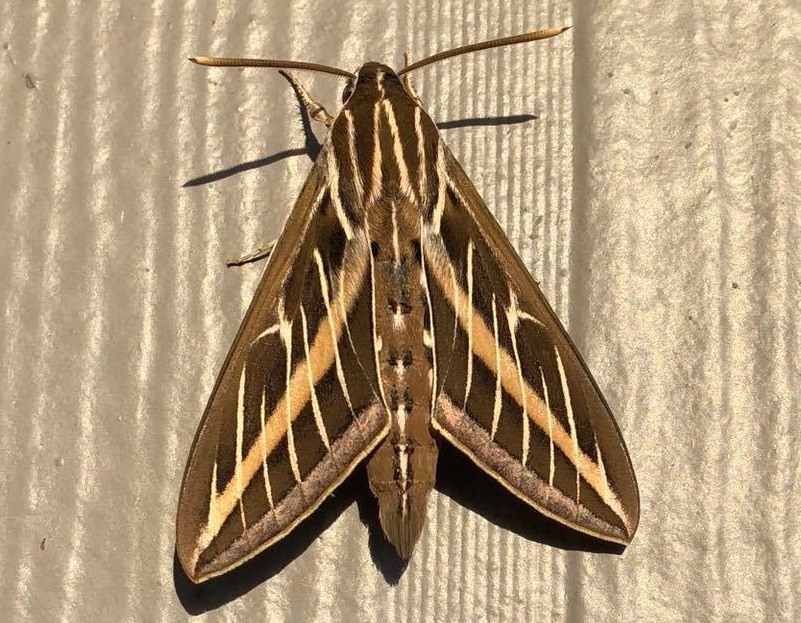
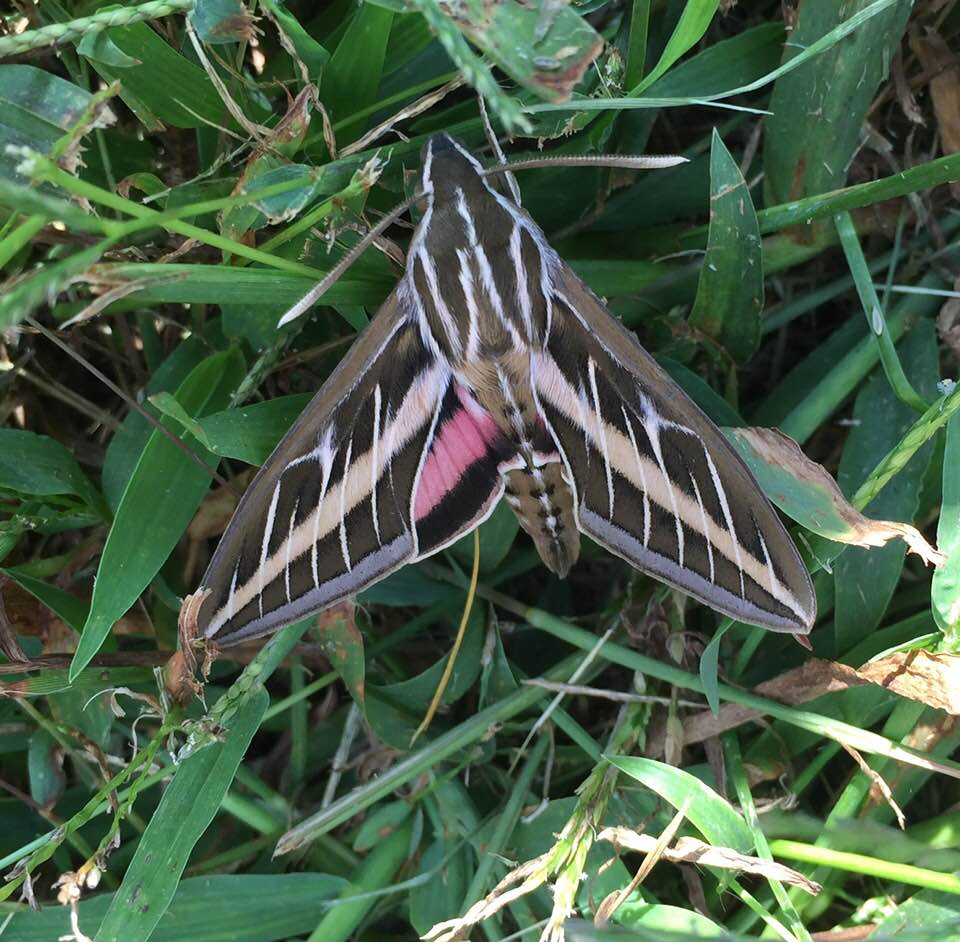
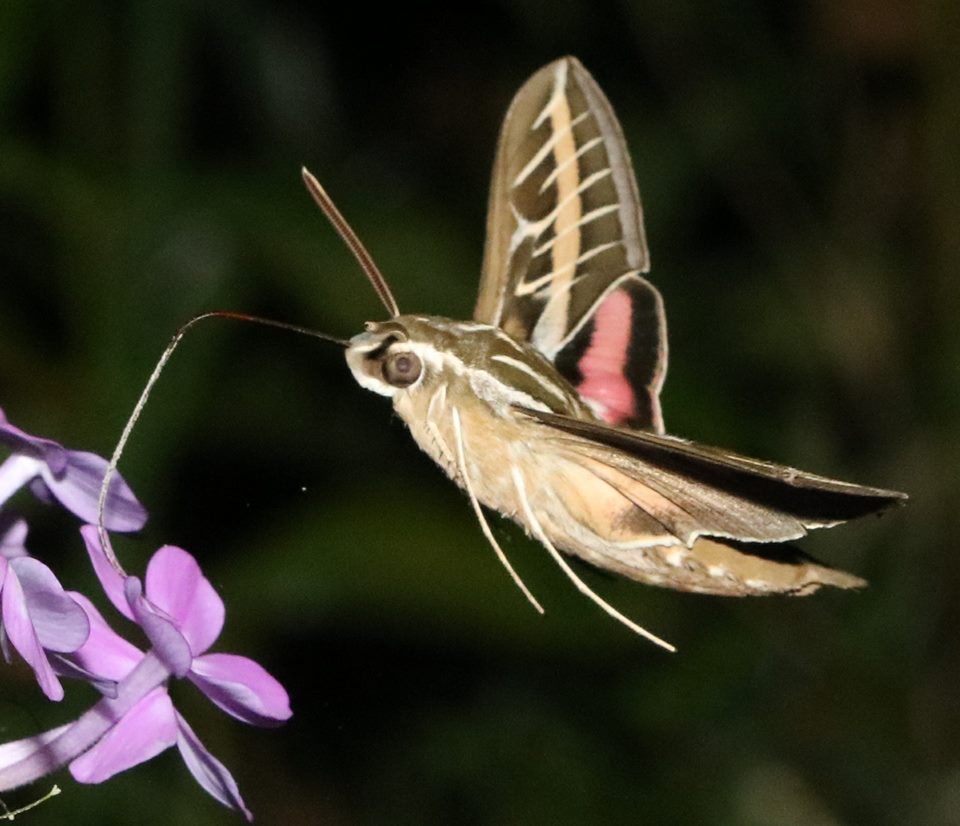
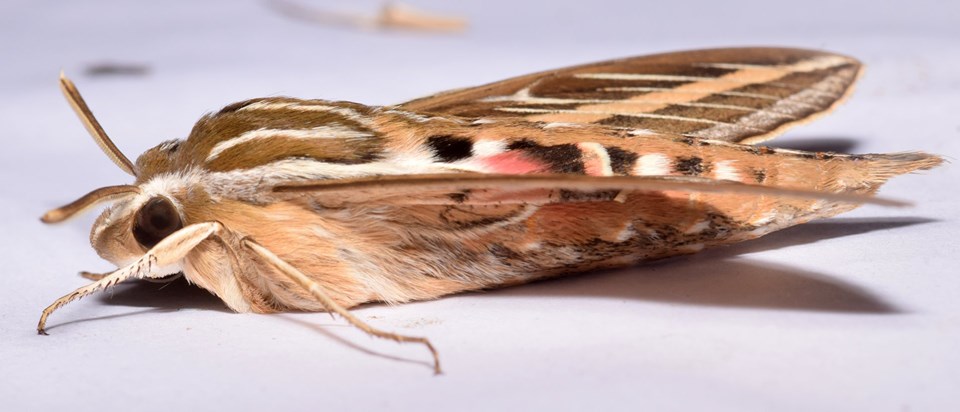
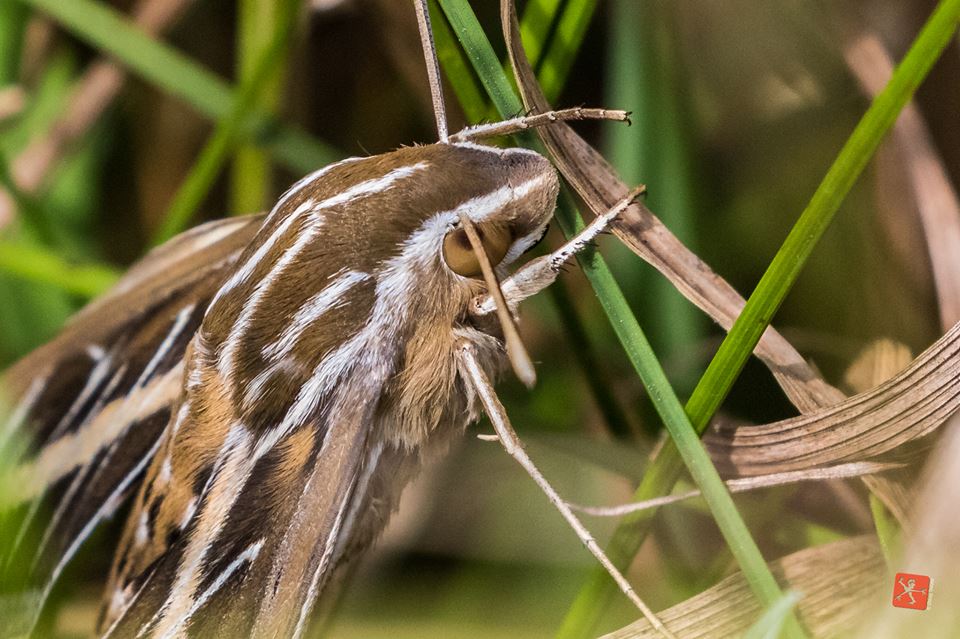
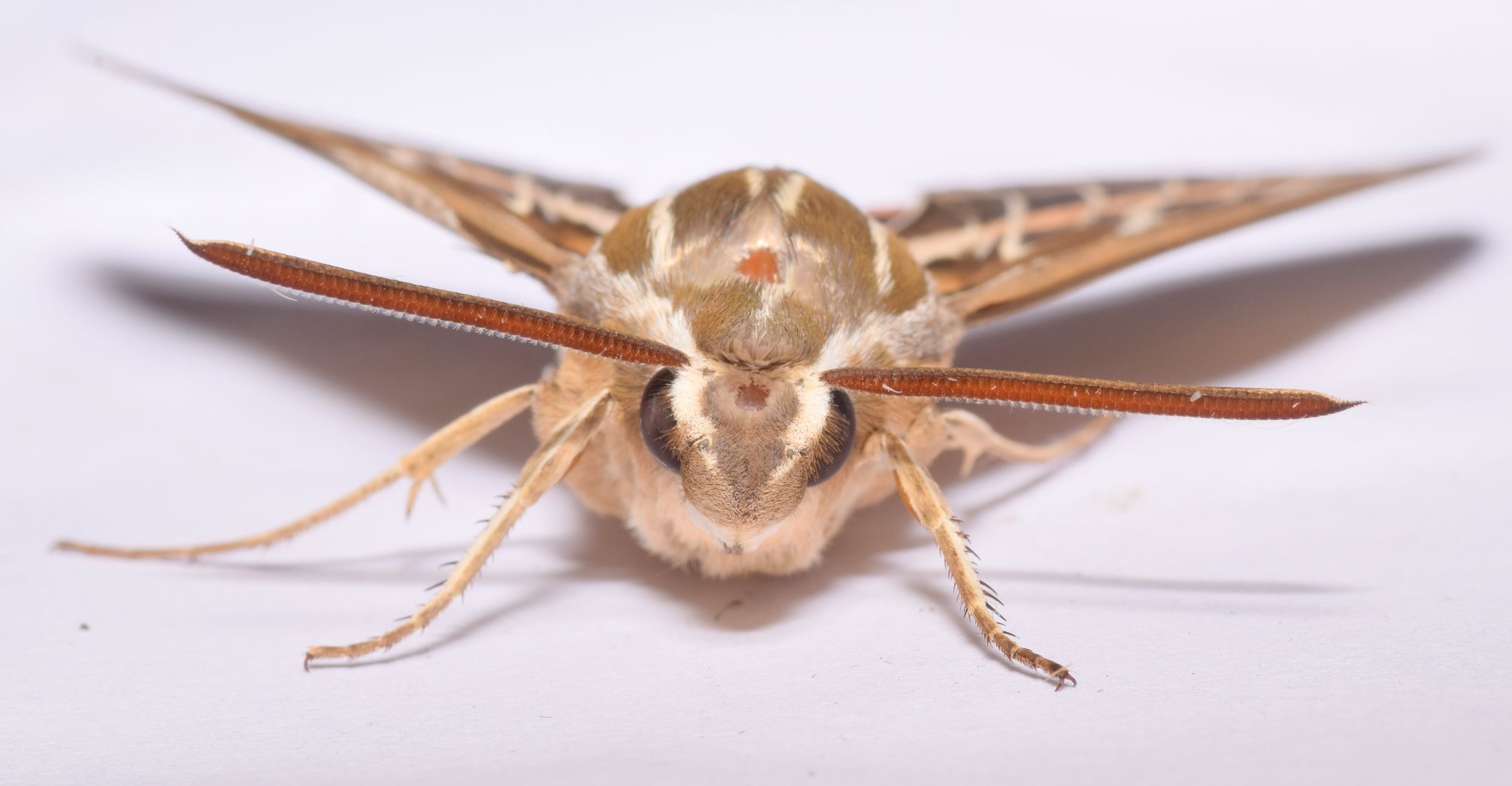
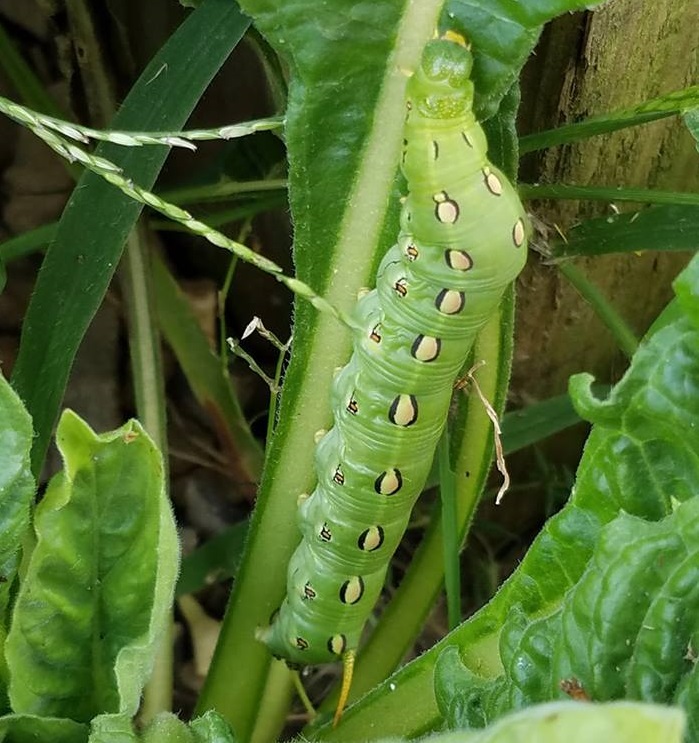
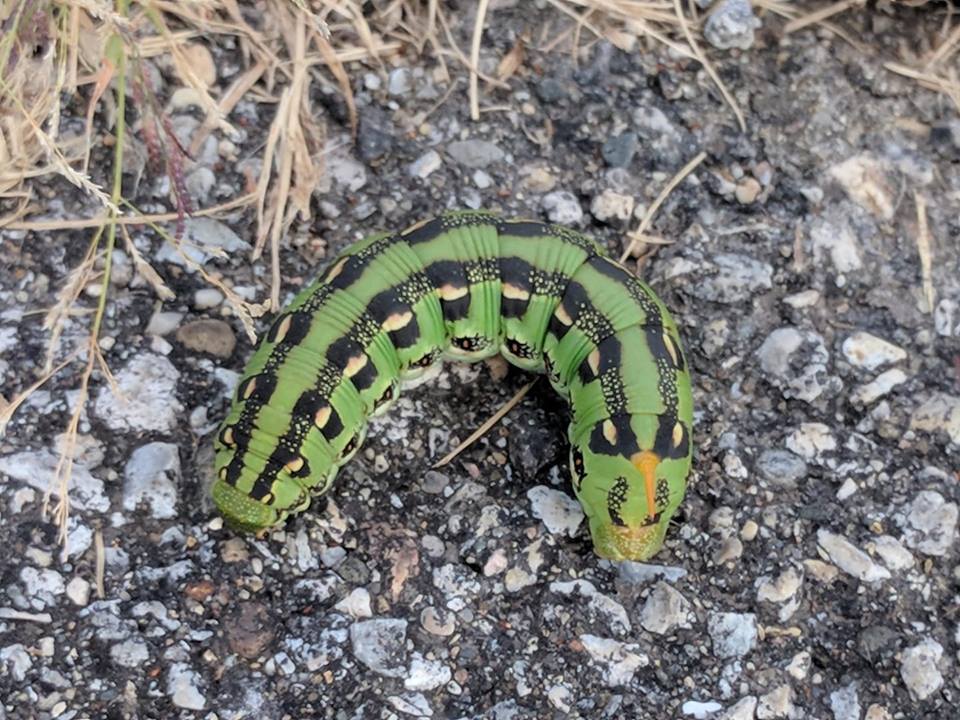
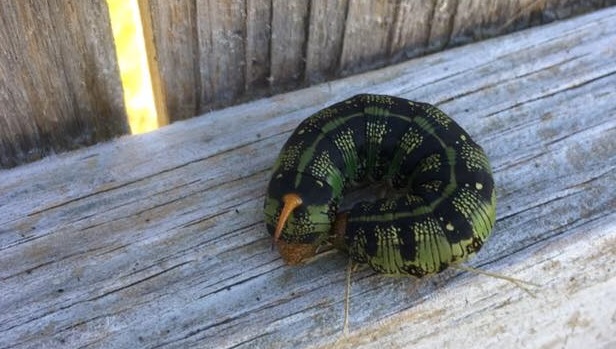
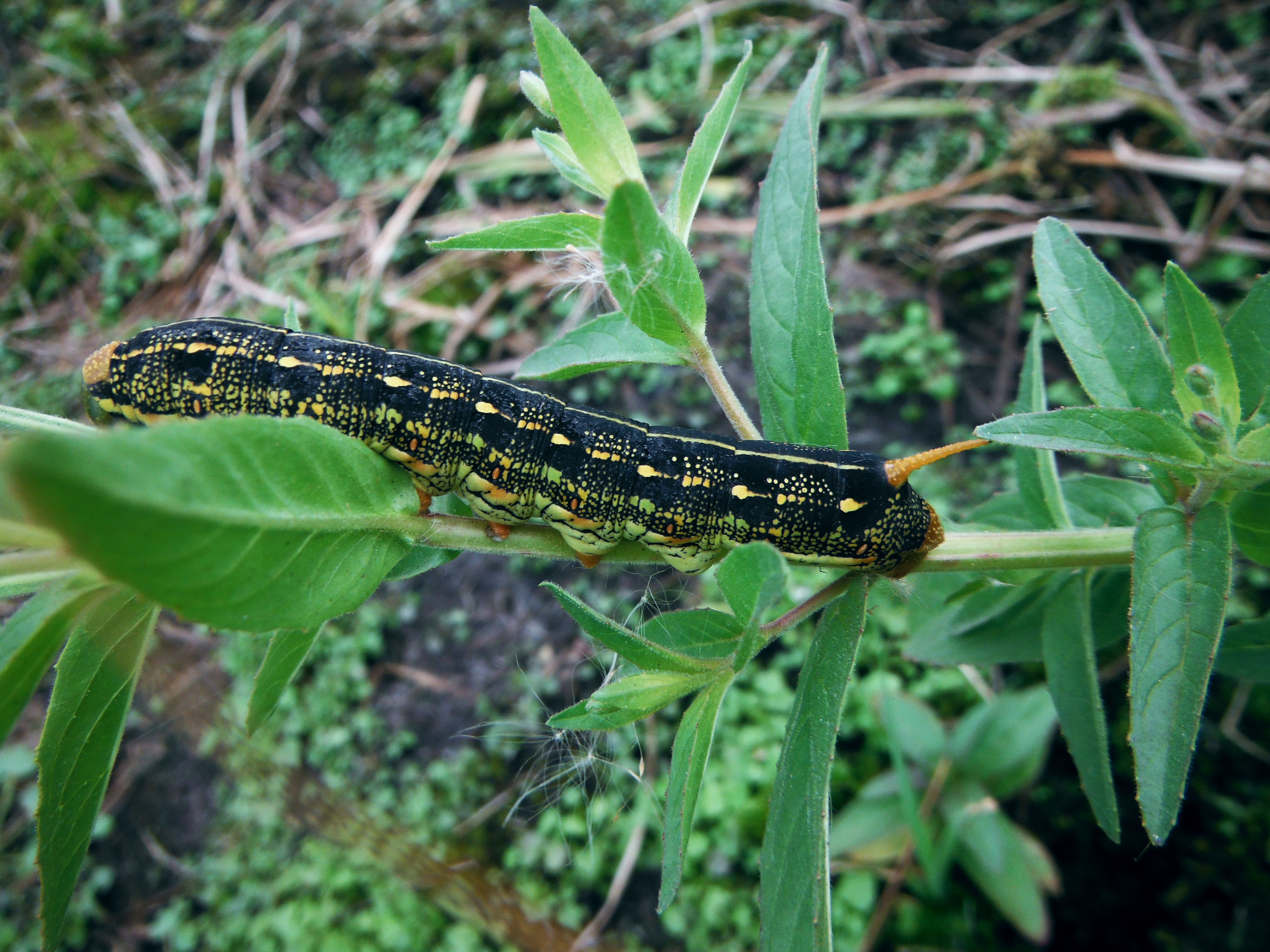
Hyles: Hyles was a Greek centaur who fought against the Lapiths.
Lineata: Latin for “line,” which describes the white lines present on adult moths.
Hy-lees lin-ee-A-tuh
Purslane Caterpillar










This map shows the confirmed sightings of the White-lined Sphinx moth in Indiana. All sightings were confirmed through photographic documentation by individuals who contributed to the Great American IN Nature Lepidoptera Project (GAIN LP).
 |
GAIN LP documented in county. |
White-lined Sphinx caterpillars are fairly generalistic feeders that are able to utilize a variety of trees, shrubs, vines and herbaceous plants including several garden and agricultural species. Adults nectar from flowers.
| Known Larval Food Sources in Indiana | ||
| Family | Taxonomic Name | Common Name |
|---|---|---|
| Order: Asterales | ||
| Asteraceae | Erigeron spp. | fleabanes |
| Lactuca spp. | Lettuce | |
| Order: Brassicales | ||
| Brassicaceae | Brassica spp. | mustards |
| Order: Caryophyllales | ||
| Amaranthaceae | Amaranthus spp. | amaranths |
| Chenopodium spp. | goosefoots | |
| Salsola tragus | prickly Russian thistle | |
| Caryophyllaceae | Stellaria spp. | chickweeds |
| Nyctaginaceae | Mirabilis spp. | four-o'clocks |
| Polygonaceae | Eriogonum annuum | annual buckwheat |
| Polygonaceae | Fagopyrum esculentum | common buckwheat |
| Polygonaceae | Polygonum spp. | knotweeds and smartweeds |
| Rumex spp. | docks | |
| Portulacaceae | Portulaca spp. | purslanes |
| Order: Cucurbitales | ||
| Cucurbitaceae | Citrullus lanatus | watermelon |
| Cucumis spp. | cucumbers and melons | |
| Order: Dipsicales | ||
| Adoxaceae | Sambucus spp. | elderberries |
| Caprifoliaceae | Lonicera spp. | honeysuckles |
| Order: Ericales | ||
| Ericaceae | Rhododendron spp. | azaleas and rhododendrons |
| Order: Fabales | ||
| Fabaceae | Pisum sativum | garden pea |
| Order: Gentianales | ||
| Rubiaceae | Galium spp. | bedstraw |
| Order: Lamiales | ||
| Oleaceae | Syringa spp. | lilacs |
| Plantaginaceae | Plantago spp. | plantains |
| Order: Myrtales | ||
| Onagraceae | Clarkia spp. | clarkia |
| Epilobium spp. | willowherbs | |
| Oenothera spp. | primroses | |
| Order: Rosales | ||
| Rosaceae | Malus spp. | apples and crabapples |
| Prunus spp. | cherries | |
| Pyrus spp. | pears | |
| Rosa spp. | roses | |
| Rubus spp. | blackberries, dewberries, and raspberries | |
| Ulmaceae | Ulmus spp. | elms |
| Order: Salicales | ||
| Salicaceae | Salix spp. | willows |
| Order: Saxifragales | ||
| Grossulariaceae | Ribes spp. | currants and gooseberries |
| Order: Solanales | ||
| Convolvulaceae | Ipomoea spp. | morning glories |
| Solanaceae | Solanum spp. | nightshades |
| Order: Vitales | ||
| Vitaceae | Parthenocissus spp. | Virginia creeper and woodbine |
| Vitis spp. | grapes | |